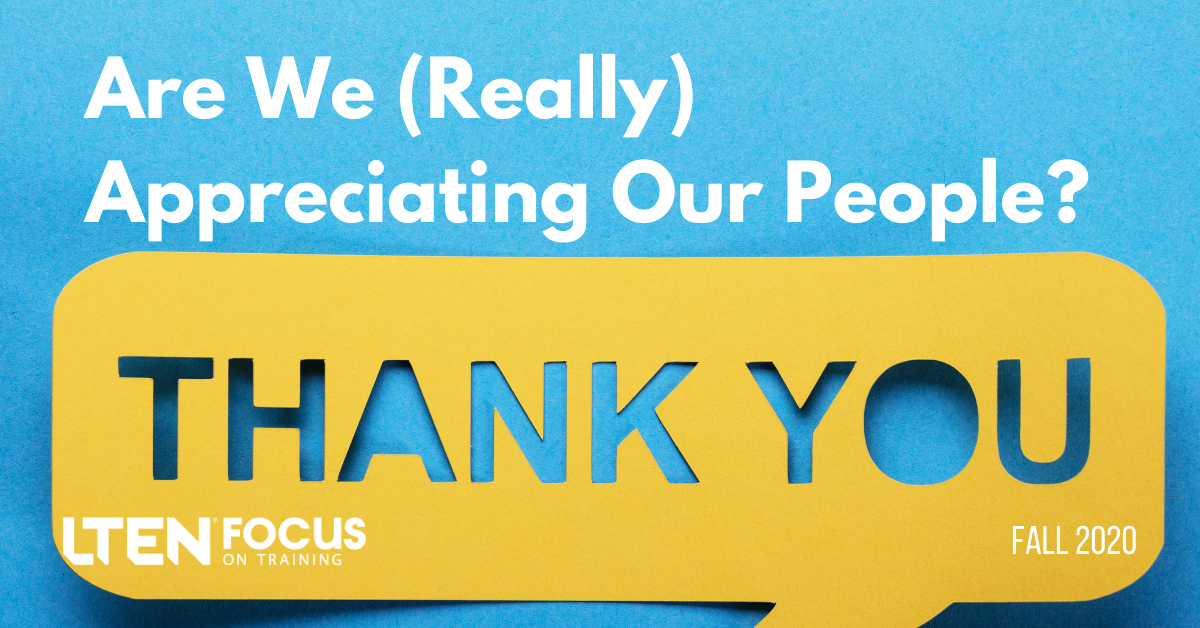
From the President – Richard Sampson
Are We (Really) Appreciating Our People?
Now more than ever, our cobblers need shoes too.
To use a word or three my kids might use, this year has been weird. Awkward. Tough.
Let’s put that in business terms, where challenges become opportunities: This year has been a learning experience. It’s forced us to explore new avenues. It’s provided the breeding ground for innovation and creativity. And, yeah, it’s been weird.
Weird is OK though. If training excels at anything, it’s at accepting change, harnessing potential and building skills from any platform, at any level, at any time. When faced with unprecedented challenges, training regrouped and came back stronger by making the virtual approach one of our dearest friends.
Over the past few quarters (yes, it’s not that long a time we’re talking about), training departments all across the life sciences industry shifted representative skills to a virtual world. We learned to design and deliver from our home offices, we learned to teach skills that were new to us and we learned how to make lemonade from really big lemons.
But I’m telling you what you know: We’re in challenging times and our teams are amazing. Whether you have a corner office or typically work in a repurposed small
space in your house, we’re all equal parts of a process that’s reliant entirely on people. And when the going got tough, our people got tougher. Of course, we’re not out of the weeds yet, but with the flexibility, innovation and drive we’ve shown so far, that emergence is inevitable.
So what do we do in the meantime? More of the same, naturally. And we think about training. And our teams. And competitive advantages. For this issue’s article, I’ve been thinking about all that, and the two sides of our proverbial coin – training and people development. To reap the competitive advantage reward that our best efforts bring to our companies, it’s important we hit both targets.
Training is what we do, and what we’ll continue to do. In many ways, keeping the needs of others in mind is our fallback, reset position. Stay that course … keep looking at new ways to educate your learners, to raise their skills to raise the organization. A well trained team is something that makes businesses proud, that brings in new revenue and, in industries like ours, actually saves lives.
The value of that side of the coin makes the importance of the other side more critical: Training leaders must develop the people on their teams, so they have the abilities to help learners. Now more than ever, our cobblers need shoes too.
Keep the development of your people first and foremost at all times. Whether you have people passing through training or people making their careers at it, they deserve exposure to the tools, skills and talents that will help them succeed. It’s easy to get into routines that cross items off to-do lists, but don’t forget to provide the growth and opportunities that raise all ships.
This different-ness we’re experiencing now will pass, and when it does, our learners will be stronger and more agile. Make sure your teams are getting that same attention, that you are investing in them as they work with you to ensure your organization succeeds in this new environment.
Richard Sampson is president of the LTEN Board of Directors and head of global training for Cepheid. Email Richard at richard.sampson@cepheid.com.








